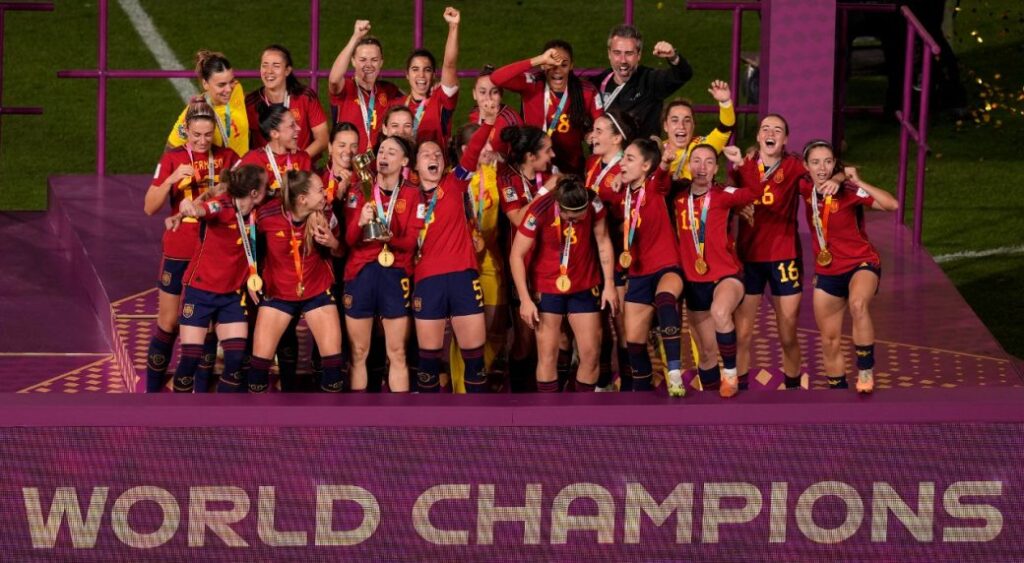Newsmatro

In the wake of their historic Women’s World Cup victory, Spain’s female soccer players are making a bold statement against the deeply ingrained sexism and abuse that has plagued their sport. The Spanish Football Federation, long criticized for its dismissive and demeaning treatment of women’s players, is now under scrutiny, and the World Cup champions are refusing to play in upcoming Nations League games until meaningful change occurs.
This protest follows a series of incidents that have exposed the entrenched culture of sexism within the federation. Luis Rubiales, the federation’s leader, faced backlash for his misogynistic behavior, and Jorge Vilda’s sense of entitlement only added to the problem. Despite claiming to have seen the light, the federation continues to face criticism for watering down a statement of support for the World Cup champions and Jenni Hermoso, Spain’s all-time leading scorer, who was kissed without her consent by Rubiales.
Over three dozen players, including nearly the entire World Cup-winning squad, issued a letter expressing their dissatisfaction with the insufficient changes made thus far. They emphasize that the players do not feel safe and respected within the current soccer environment, and they demand a complete transformation of the federation’s culture.
The players’ decision to boycott the upcoming Nations League games is seen as a strategic move to leverage their current prominence to drive real reform within the Spanish federation. They argue that merely accepting promises from the federation is insufficient, as there would be no guarantee of follow-through. By taking this stand, the players hope to usher in a safer and more equitable era for women in soccer, ensuring that future generations are treated with the respect they deserve.
The controversy surrounding Rubiales’s behavior at the World Cup final and Vilda’s arrogance has sparked a #MeToo-like reckoning in Spain, prompting society to reevaluate who receives credit and whether it is genuinely deserved. However, the players believe that playing in the Nations League games at this juncture would allow both the federation and society to evade accountability.
Spain’s female soccer players understand the sacrifices they are making for their principles. Their remarkable World Cup victory, the country’s first, has been overshadowed by the federation’s failures. Boycotting the Nations League games could cost Spain its first-ever trip to the Olympics, as only the group winners advance to the semifinals, which serve as a qualifier for the Paris Games.
In an ideal scenario, Spain’s players would be celebrating their historic achievement and enjoying the public’s adulation. Instead, they are using their platform to draw attention to the federation’s persistent shortcomings, hoping that their boycott will compel Spain to address these critical issues.
The players insist that it is time to combat such behaviors in soccer and society as a whole, asserting that a fundamental restructuring of the women’s team organization is necessary to create a safe and equal environment for future generations.
While Rubiales and Vilda may be on their way out, the deep-seated sexism within Spain’s federation remains a pressing concern. The players’ principled stand is a call for change that transcends sports, advocating for zero tolerance when it comes to protecting their teammates, colleagues, and all women.
As Spain’s female soccer champions continue to push for reform, the world watches to see if their bold stance will finally bring about the long-overdue change in the nation’s soccer culture.